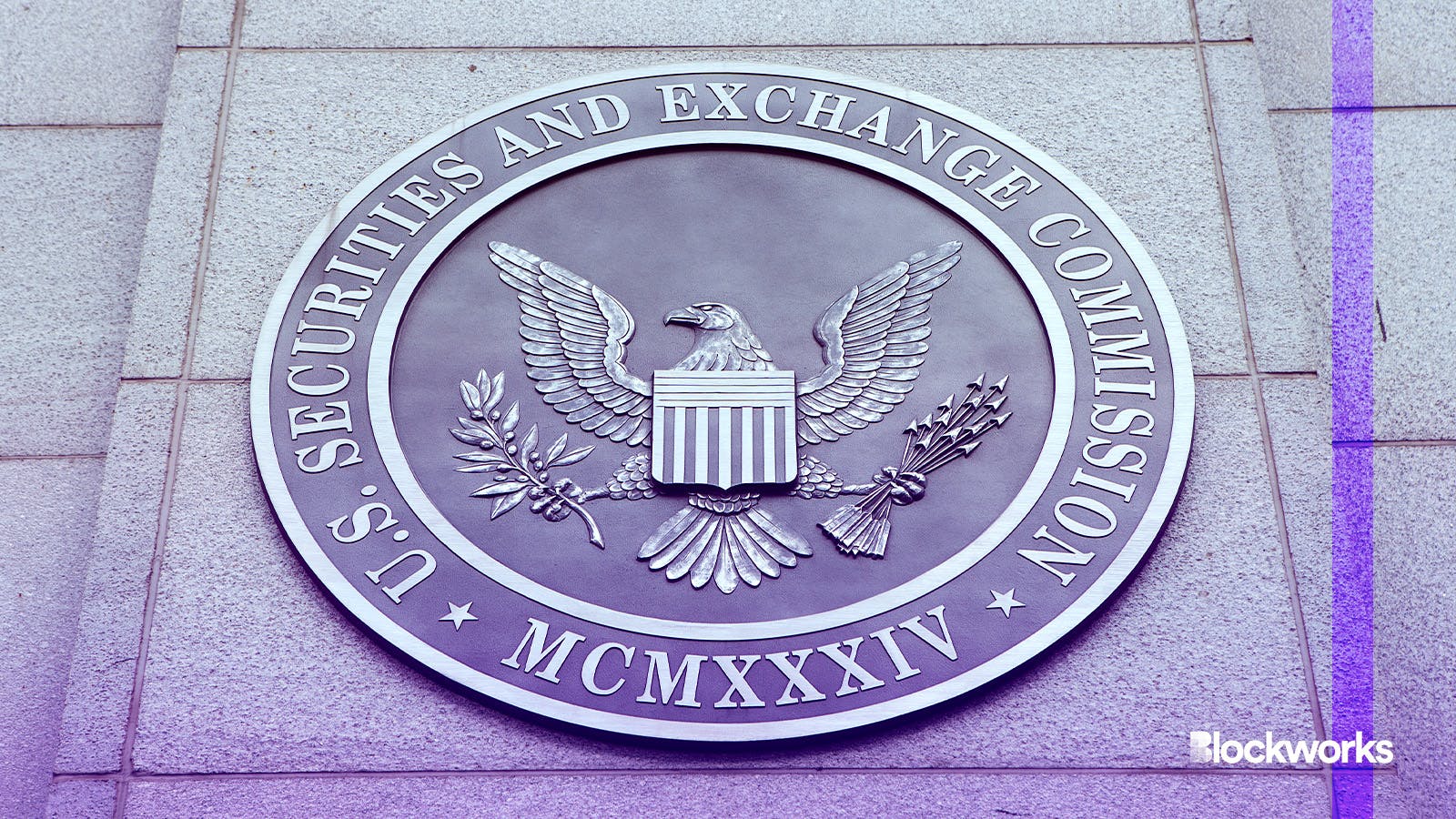DEBT Box challenges SEC’s attempt to dismiss crypto case
The SEC asked the court to dismiss the case without prejudice but DEBT Box says there is a double standard at play

Mark Van Scyoc/Shutterstock modified by Blockworks
DEBT Box is asking a federal judge to deny the Security and Exchange Commission’s recent motion to dismiss its case against the cryptocurrency project. The company argued that the federal agency is attempting to cover up gross “misconduct.”
The SEC last month, in response to sanctions threats after alleged violations, asked the court to dismiss the case without prejudice. If granted, that would leave the door open for the agency to refile charges against the defendants down the line.
Read more: DEBT Box defendants say SEC’s deception impacted personal, business endeavors
After suing Digital Licensing Inc., which operates under the name DEBT Box, in August 2023, SEC attorneys were granted a temporary restraining order (TRO) against defendants after making what judge Robert Shelby later described as “misleading” statements to the court.
When threatened with sanctions by the court, the SEC conceded “that its attorneys should have been more forthcoming with the Court,” but maintained that “sanctions are not appropriate or necessary to address those issues.” The agency suggested the only reprimand from the court be to grant its motion to dismiss without prejudice.
“The SEC wants to exit this action under its own terms while retaining the option to re-file another enforcement action against the DEBT Box Defendants and other defendants at some undetermined time in the future, and perhaps in a different forum — as if nothing happened in this case,” DEBT Box attorneys wrote in their opposition motion filed Wednesday.
Defendants say the TRO, which was granted in August and later renewed several times, shut down DEBT Box. The company’s representatives alleged that this resulted in a “complete disruption” for around 300,000 users in more than 130 countries. DEBT Box’s native token crashed more than 56%, defendants added.
Read more: A federal judge says SEC lawyers lied to freeze a crypto company’s assets
Defendants Jason Anderson, Jacob Anderson, Schad Brannon and Roydon Nelson, collectively known as the “DEBT Council” have been identified as the sole controllers of the platform by the SEC. They found their personal and business assets frozen by the restraining order, leading to issues such as being unable to pay employees and the cancellation of loans. Additionally, credit card companies and banks refused to work with them, as stated by the defendants in a filing dated Jan. 12th.
“Still, the SEC wants a double standard — it wants to be treated differently before federal courts than those that it regulates or attempts to regulate,” the defense team wrote in Wednesday’s filing. “When an individual or entity is suspected of making materially false and misleading statements in the securities market, the SEC brings charges under the anti-fraud provisions of the federal securities laws and seeks the heaviest monetary and non-monetary sanctions that it believes it can obtain in court.”
Defendants are also asking the judge to keep a March 7 hearing on the books, which the SEC had previously asked the court to cancel.
Get the news in your inbox. Explore Blockworks newsletters:
- The Breakdown: Decoding crypto and the markets. Daily.
- 0xResearch: Alpha in your inbox. Think like an analyst.






